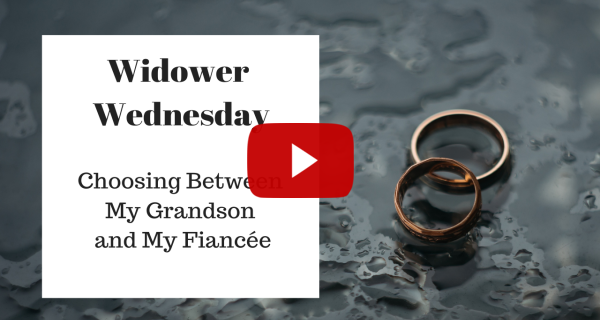Are you tired of feeling like you’re living in someone else’s story? In this video, I’ll show you how to build a new traditions and fresh memories with a widower—without getting stuck in the shadow of his late wife. You’ll learn:
Why repeating old traditions can keep your relationship stuck in the past
How to start new rituals that make your marriage feel alive and uniquely yours
Simple ways to blend old memories with new beginnings—especially if kids are involved
Your relationship deserves its own story. It’s time to stop replaying the past and start creating the future—together.
I’m Abel Keogh, author of the book, Dating a Widower, and today we’re going to discuss the third of three reasons marriages to widows and widowers thrive. And what is that reason? It’s that they make new memories and start new traditions together.
Let me break it down for you. People are creatures of habit and widows and widowers are not different. They’ve often spent decades living a certain way with someone else. It’s not just the big things like holidays or birthdays, but the restaurants they frequented, the vacations they took, the TV shows they enjoyed, and the way Saturday mornings started. Over time, these routines become second nature. They’re comforting and familiar. However, you must create new memories and traditions together for your relationship to thrive.
In my coaching sessions, many clients tell me they felt they were living in the widow's or widower’s marriage to their late spouse. For example, they go to the same beach house he and the late wife visited every summer, decorate the Christmas tree with her ornaments, and eat the same breakfast he used to make for her. At first, it felt like they were being included in something special, but slowly, it started to feel like they were a guest in someone else’s story.
To be fair, most widows and widowers aren’t doing this to be hurtful. They don’t always realize that by keeping old routines, they’re unintentionally leaving their new partner on the outside looking in. Some even think they’re honoring the new relationship by sharing what was special in the past. However well-meaning they are, your relationship doesn’t need to be an extension of the past. It deserves to be a life with new memories and traditions reflecting the two of you.
Now, making new memories and starting new traditions go both ways. If you want a relationship that feels fully alive and grounded in the present, you must also be willing to step outside your patterns. That might mean letting go of how you’ve always done things, especially if you’ve been single or divorced for a long time and developed your own rituals. Maybe you’ve always traveled to your sister’s for Thanksgiving or decorated a certain way for the holidays. A strong relationship means being willing to blend, adapt, and start fresh together, not just expecting the widower to do the heavy lifting.
On a personal level, when Julianna and I were first dating, I made this mistake. I took her to restaurants that Krista and I loved and trails that we had hiked together. I didn’t do this to relive the past, but because I knew the food and scenery were good. However, it didn’t take long to realize something felt off. Even if the place was “neutral,” some emotional weight still lingered. So, I made a conscious decision to start fresh. I began planning new trips, finding different restaurants, and creating our go-to spots. Julianna brought ideas too—places and experiences I wouldn’t have picked on my own but grew to love. We built our new life as a team. That’s why, twenty-two years later, the goofy traditions, the new places, and the shared rituals we created together are the glue that holds us close. It’s what makes our relationship feel real, not recycled. Your relationship should feel similar.
If the widow or widower you’re with resists change or if you find yourself clinging to past routines, rituals, or identities, take that as a sign that it's time to shake things up. Suggest new places to visit and new traditions to start. Start small if needed. If either of you constantly defaults to what’s always been done out of habit, guilt, or fear of disappointing others, that’s a rut, not a life.
If you or your widowed partner has young children at home, be thoughtful about how you transition. You don’t have to erase everything. Children need continuity, especially after loss. However, you can still introduce new ideas and blend the old with the new. One woman I coached came up with a great approach: at Christmas, she kept a few of the family’s traditional ornaments for the kids but added new ones that reflected her story and personality. It made the home feel like everyone belonged. That’s the kind of intentionality that builds a life.
That solution may not work for you or the widow/widower you’re with, but if you put the effort into building a life that feels like yours, it will lead to a long and wonderful relationship where the past is honored but not repeated, one where both of you feel at home.
I’m Abel Keogh, author of the book, Dating a Widower and I’ll see you all next Wednesday.

